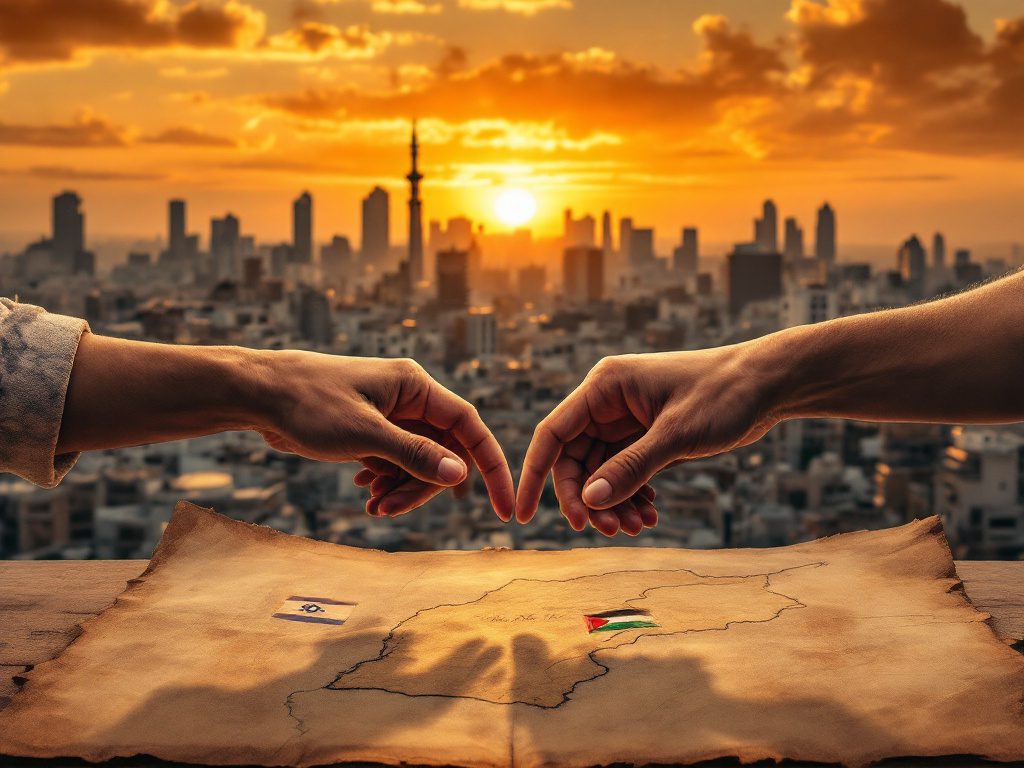The Hostage Crisis and a High-Stakes Diplomatic Rift
As the Gaza conflict endures, a fresh diplomatic feud has erupted, exposing deep fractures not just between Israel and Hamas, but among supposed mediators themselves. Israeli Prime Minister Benjamin Netanyahu has publicly assailed Qatar, accusing the Gulf state of duplicity in brokering hostage negotiations while simultaneously enabling extremist actors. At the heart of this dispute is the unresolved fate of over 130 hostages and a broader question: Can Qatar claim moral high ground as a neutral facilitator, or does its conduct undermine the very peace it professes?
Qatar’s outsized influence is undeniable. For months, Doha has functioned as one of the few reliable intermediaries between Israel and Hamas – facilitating negotiations that have, in the past, resulted in hostage releases. Yet beyond the smoky backrooms and encrypted messages, the international stage has turned hostile. Netanyahu, invoking language heavy with historical resonance, declared Israel is waging a “just war with just means,” going further to suggest that any attempt at neutrality in the face of Hamas terrorism amounts to complicity. In his words, Qatar must “choose between the side of civilization and Hamas barbarism.”
What motivated Netanyahu’s sudden, scathing tone? According to Israeli reports, anonymous sources allege that Qatar has, behind the scenes, been urging Hamas leadership to reject an Egyptian-brokered compromise deal—fueling suspicions that Doha’s leverage may be serving partisan rather than humanitarian aims (New York Times, May 2024). If accurate, such behavior risks prolonging the deadlock at the dire cost of civilian lives.
Qatar’s Response: Impartial Mediator or Accused Enabler?
Across the Arabian Peninsula, Qatari officials bristled at the accusations. Dr. Majed bin Mohammed Al Ansari, advisor to Qatar’s prime minister, swiftly condemned the Israeli Prime Minister’s statements as “lacking basic standards of political and moral responsibility.” Qatar, in its own diplomatic communique, asserted its role as a “credible and impartial mediator,” arguing that the very releases Israel touts as victories for military action were, in fact, the fruit of painstaking mediation initiatives out of Doha. Qatari spokespeople emphasize the nation’s commitment to peace and to the establishment of a Palestinian state along 1967 borders, a position widely supported by the international community.
The rhetoric between these nations is not without its roots. Hostage releases credited to Qatar are an inconvenient reality for Netanyahu’s government, who must contend with domestic pressure to recover every last civilian and soldier. Beyond that, Qatari diplomats point out the irony: How can their efforts be both ineffective and worthy of scorn, when Israeli citizens owe their freedom to Qatar’s engagement? The answer, they suggest, lies in selective memory and shifting blame.
Meanwhile, Qatari envoy Mutlaq Al-Qahtani intensified the row by condemning Israel’s conduct at The Hague, labeling the military campaign in Gaza as a “genocidal war” and an affront to international conscience. The invocation of such grave accusations is not just window-dressing for the cameras in Europe; it’s an act of calculated defiance—a bid to recast the narrative of who bears responsibility for Gaza’s devastation.
“Accusing Qatar of duplicity in diplomacy does not erase the plain fact: more than 138 hostages have been freed thanks to behind-the-scenes mediation, not military might.”
This debate is hardly academic. Each day that passes sees mounting civilian casualties, deepening hunger, and growing international outrage, with humanitarian groups like Amnesty International and Human Rights Watch documenting grave abuses on all sides (Amnesty, April 2024).
The Geopolitical Stakes: Beyond Black-and-White Narratives
Why this show of diplomatic brinkmanship now? For Israel, labelling foreign mediators as unreliable serves a dual purpose: it tightens domestic unity around the government’s preferred approach—total military victory over Hamas—and deflects outside scrutiny. For Qatar, making a stand is about asserting regional prestige, protecting economic interests, and demonstrating alignment with Arab and international expectations for a lasting ceasefire and a two-state solution.
Yet the impulse to cast this confrontation in absolute moral terms—civilization versus barbarism—ignores the messier realities of international diplomacy. Even the United States, Israel’s most stalwart ally, has at times expressed gratitude for Qatar’s mediation while bristling at its rhetoric on the world stage. Past hostage crises, whether in Colombia, Afghanistan, or Syria, attest that successful deals almost always require the intervention of actors with unsavory relationships or ambiguous loyalties (see: Iran-Contra, 1980s; or U.S.-Taliban prisoner swaps).
What’s at risk when dialogue is sacrificed on the altar of absolutism? Harvard international relations scholar Stephen Walt describes this pattern as “diplomatic escalation for show, not for solution”: leaders transform every ambivalent act into a loyalty test, ultimately making actual progress harder to achieve (Foreign Policy, Dec 2023).
The consequences reach far beyond the corridors of power in Jerusalem or Doha. As regional players dig deeper trenches, the real casualties remain Palestinian civilians and Israeli hostages—trapped by war, rhetoric, and political calculation. If history teaches us anything, it’s that sustainable peace almost always depends on dialogue with difficult partners, on imperfect mediators who exist in the gray spaces between saints and villains.
So, when leaders reach for the vocabulary of good versus evil, perhaps it’s less about moral clarity and more about obscuring their own failures of will and imagination. As global observers, you are right to demand better: not just a choice between opposing flags, but an insistence that negotiating tables remain open—even when, especially when, the doors are hardest to unlock.

